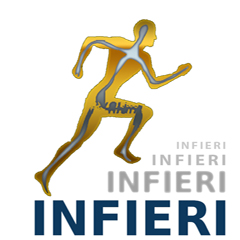On the afternoon of the Opening Day of the School, a plenary session is dedicated to the presentation of the Labs by the Lab organizers.
All the afternoons, from 2h30 pm to 5h30 pm, from the Tuesday of the 1st week till the Friday of the 2nd week, are covered by the Lab sessions.
It means each Lab is run, each day from Tuesday to Saturday (1st week) and from Monday to Friday (2nd week). with each day a different team of students.
Each school attendants will choose 10 Lab sessions, in the " Labs Menu' comprising a total of about 30 Labs.
They shall not attend Labs too close to their topics of research and/or of studies. An important goal of the School is "opening the students' eyes" to new domains/topics and to the synergy between different fields and applications. This is essential for their future.
The Labs are Hands-on Lab not demonstrator Labs.
The Lab sessions as the Lectures are obligatory. They cover all the topics presented in the Lectures. They provide an essential complementary contribution to the Lectures,
The hardware based Labs will gather different teams of 2-3 students each day. The software based Labs and the Masterclasses will gather different teams of 4-5 students each.
At the beginning of the Lab session, the students are introduced to the topic covered by the Lab, with a tutorial of about 30 minutes at most.
Some Labs may include two stages (meaning 2x3 hours) i.e. indeed two Lab sessions. The 2 stages will have to be run over the full duration of the School.
School attendants can, if they wish, repeat a Lab session they could not well perform or grab its full content as students must plenty benefit of the training provided by the Labs. But this would decrease the total number of Labs they can perform.
The Labs will be organised in different locations related to their topic. This means in different Schools and/or Labs in the UAM Campus; thus the school attendants will get a real life picture and experience of the offered facilities of UAM. Likewise the Labs organization will make them to know other Universities or Laboratories in the Madrid area that are contributing to the School. This will underline the potential of these places and give a great visibility to UAM and all the contributors in the Madrid area.
A transport will be made available for the school attendants to join another location in Madrid whenever needed by the corresponding Lab session.
The school organization takes the challenge to organise the School in person. This applies as well to the logistics and organization of the Lab sessions. The strict safety rules will be imposed in the Labs sessions (see SAFETY RULES).
In this school series, the Labs sessions gather a very restricted number of students (2 or 3 for hardware based Labs, 4 or 5 for software based Labs). Besides, this edition is scheduled on purpose, just before the start of the UAM Academic year. It will therefore have at disposal the large Labs classrooms at UAM (see photos) that will allow social distancing and opening windows etc...In special Labs locations such as the ones organized at CMAM, CIEMAT etc. the safety conditions will be respected as well.
Organization of the Labs:
In this school series, the Labs are organised by expert Researcher and/or Professors. The school attendants are high-skilled people, mainly PhD students or young postdocs: the running of the Labs cannot be done by a PhD student or a young postdoc.
- The Labs are divided into 7 sections each one with two Lab coordinators: one local the other one from abroad (non-UAM).
- The Lab organisers must as soon as possible inform the Lab coordinators and especially the local one of the needed basic material (hardware, software), the Lab location and space needed etc..
- The Lab organizers from abroad will sometimes request "paper work" from the two ends (UAM and their home Institute) for the transport back and forth of their Lab material. The soonest this is identified, the best.
- The coordinators are the ones that define/planify the overall program of their section in the details and in accordance with the programme covered by the lectures.
- Each Lab is run each day during 10 days with different teams of students.
- At the school registration, each student will get a Lab attendance-form with the list of Labs they register to.
- The Lab organisers will ensure the students are well following their Lab. At the end of Lab session, they will sign and include an appreciation on the attendance-form.
- As experienced in the previous editions, because the quality of the Lab organisers running the Labs and the topics covered by the Labs, many school attendants ask a reference letter to the School organisers for testifying the Labs they followed. This provides credits for students recognised by their Home Institutions/Universities.
- Jose and Aurore (as local chair and IAC chair) are supervising the overall Labs organization and program
THE TABLE of HANDs-ON LABS SUMMARIZES THE FINAL and COMPLETE LIST OF THE 28 LABS THAT ARE ORGANIZED FOR THIS SCHOOL EDITION
THE LIST of LECTURERS and LAB ORGANIZERS gives the list of LAB ORGANIZERS.
THE HANDS-ON LAB BOOKLET IS POSTED HERE as of JULY 14.
Photographs of some Labs location are shown here
STAY TUNED
